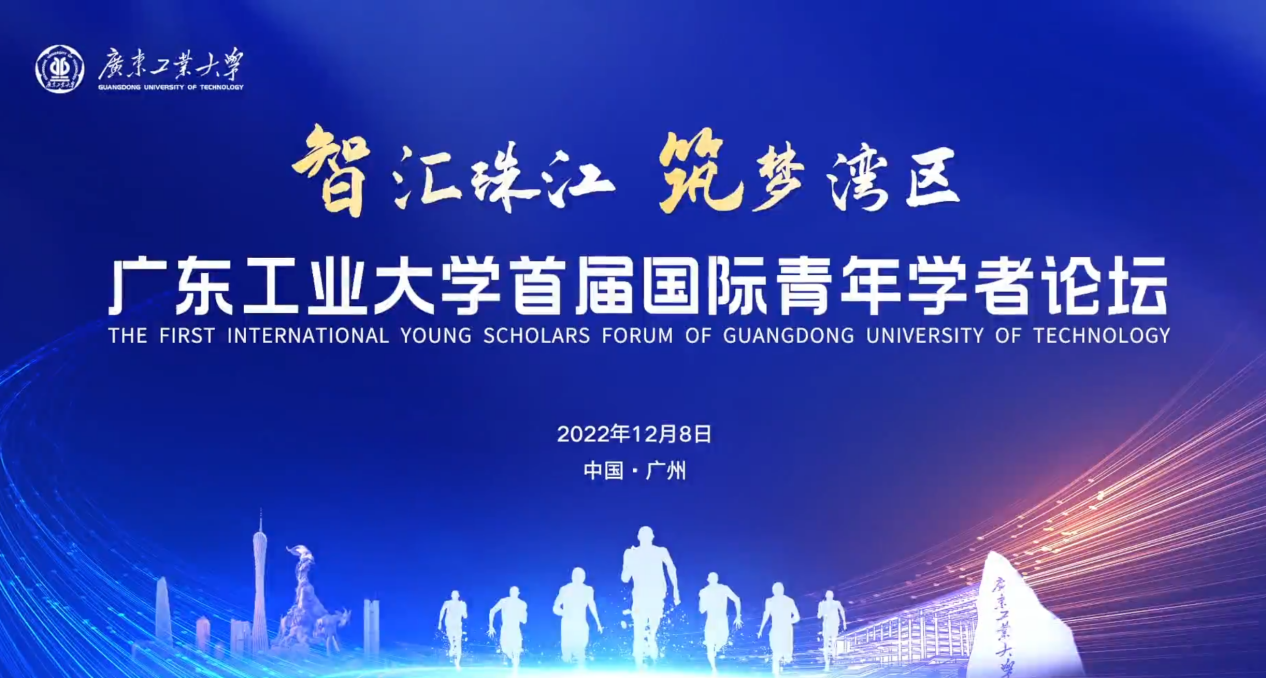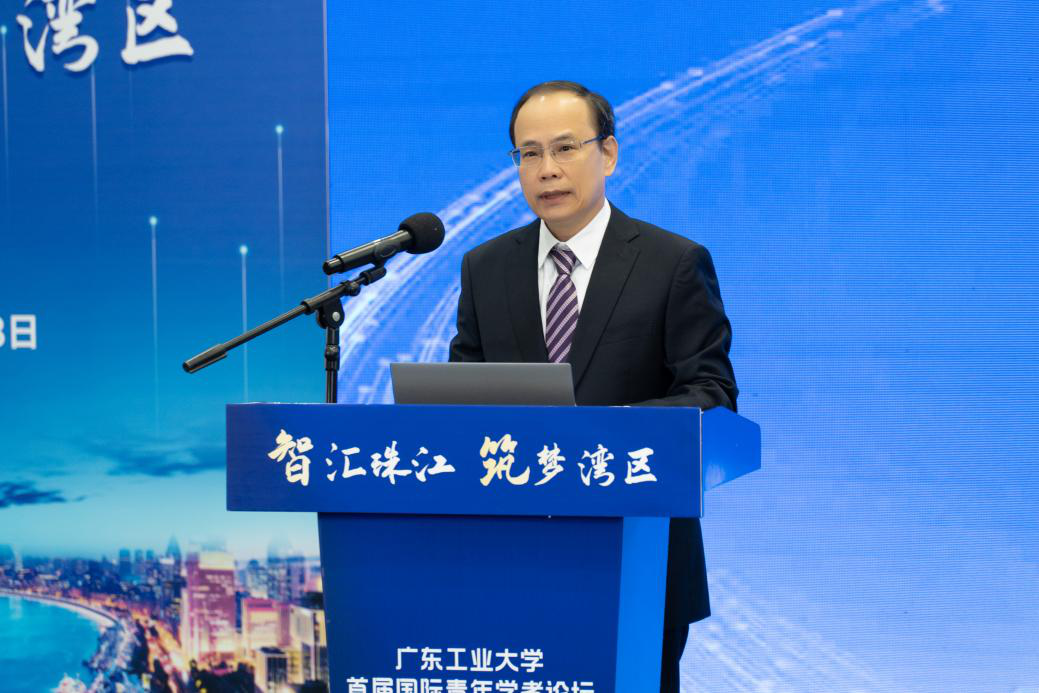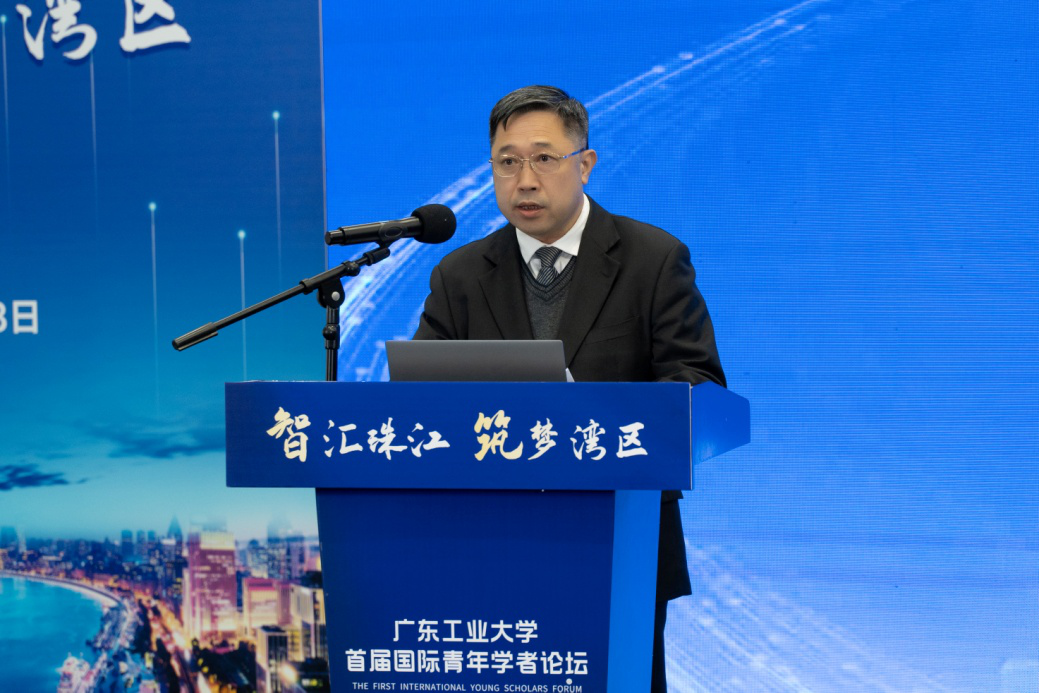The First International Young Scholars Forum of Guangdong University of Technology was held last Thursday (December 8) in the Arc Lecture Hall at the university town campus to boost the disciplinary development project detailed in the school’s Climbing Plan, serving national aspirations to build top-level talent centers and innovative hubs through the strategy of country empowered by talents. Qiu Xueqing, President of Guangdong University of Technology (GDUT), and Lao Zhihong, Deputy Director of Department of Science and Technology of Guangdong Province, delivered speeches. Luan Tiangang, Vice President, elaborated on policies toward talent after introduction of the school. Representatives of recently-joined overseas professionals shared their experiences and gains at the school. Heads from the Talent Management Division under the Department of Science and Technology of Guangdong Province, school’s Organization Division, Communication Division, and relevant departments also attended the forum.

The main forum was broadcast live worldwide, joined by nearly 400 young scholars from countries and regions in North America, Europe, and Asia as well as China, with a viewership close to 2,000.
On behalf of the school, Qiu extended a warm welcome to the attendees. He stressed that the meaning of the International Young Scholars Forum is to build a platform for outstanding talents at home and abroad to deepen academic exchanges and get to know about GDUT, a place to make continuing progress in personal career. He introduced the history and fruitful achievements of GDUT over the past 60 years, and stated the school’s effort to put talents first, supporting them to make the most of their research foundation and interests, leading to new breakthroughs in original innovation and major research.

Lao gave full appreciation to the outcomes of the school in attracting and fostering talents, emphasizing the organic connection among education, science and technology, and talents.

Luan briefed on the school’s development and talent policies, ranging from historical evolution, school-running philosophy, to disciplinary development, research strength, and students fostering.

Each school held a total of 21 sub-forums after the grand gathering, covering STEM, humanities and social sciences through subjects promotion, academic reports, consultation, and Q&A.
